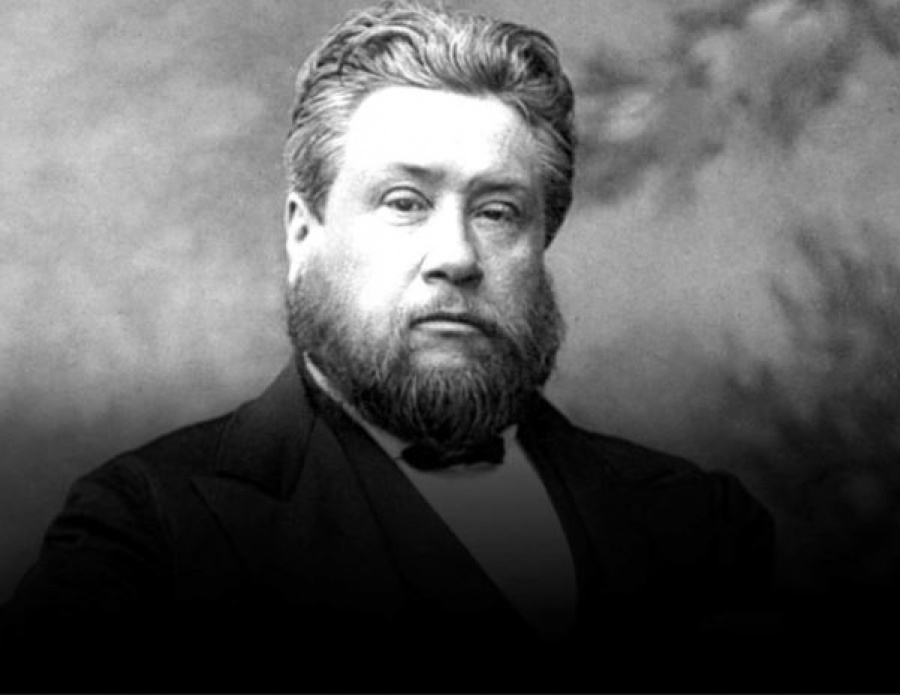
:max_bytes(150000):strip_icc()/SpurgeonPreaching-3231269-656ab69b731840898402fad027808337.jpg)
Helmut Thielicke said Spurgeon’s preaching made God’s kingdom suddenly “ up not only in men’s hearts but also in their diaphragms” (Thielicke, Encounter with Spurgeon, p. Once, when accused of making a joke in the pulpit, Spurgeon said, “If you had known how many others I kept back, you would not have found fault with that one” (Autobiography 3:346). Spurgeon’s playful personality surfaced in his sermons. “A light heart can bear heavy burdens” ( The Salt Cellars 1:22). Humor lessened his physical and mental agonies. Yet laughter was medicine for Spurgeon’s soul. He once said the twelfth commandment must have been, “Thou shalt a long face on Sunday” ( Autobiography 3:339). In Spurgeon’s day, ministry and merriment didn’t often mix.

“I have laughed more, I verily believe, when in his company than during all the rest of my life” (Williams, Personal Reminiscences, p. “His greeting was as warm as sunshine” (Fullerton, C.H. His face was “brightened by eyes overflowing with humour and softened by a most gracious and sympathetic smile” (Fullerton, C.H. “His fun was so natural, so spontaneous, and so hearty” ( Autobiography 3:361). Spurgeon “never went out of his way to make a joke, - or to avoid one” ( Autobiography 3:361). His family and friends witnessed his wit and said:

He suffered ill health towards the end of his life, suffering from a combination of rheumatism, gout and Bright's disease, often recuperating at Mentone, near Nice, France, where he died in 1892.Charles Spurgeon took the gospel more seriously than he took himself. In 1856, Spurgeon married Susannah, daughter of Robert Thompson of Falcon Square, London, by whom he had twin sons, Charles and Thomas. By the time of his death in 1892, he had preached almost thirty-six hundred sermons and published forty-nine volumes of commentaries, sayings, anecdotes, illustrations, and devotions. Spurgeon's sermons were published in printed form every week, and enjoyed a high circulation. Spurgeon was a Baptist and a Calvinist, but is still known to non-conformists of many denominations as the "Prince of Preachers" in the tradition of the Puritans and especially highly regarded among Presbyterians and Congregationalists, although he differed with them over the issue of baptism. Some say that the Metropolitan Tabernacle is considered the first modern so-called "megachurch." In 1861 the congregation moved permanently to the newly constructed purpose-built Metropolitan Tabernacle at Elephant and Castle, seating five thousand people with standing room for another thousand. At twenty-two Spurgeon was the most popular preacher of the day. In these venues Spurgeon frequently preached to audiences numbering more than 10,000 - all in the days before electronic amplification. The congregation quickly outgrew their building, moved to Exeter Hall, then to Surrey Music Hall. Within a few months of his call his powers as a preacher made him famous. In 1852 he was called to pastor of the small Baptist church at Waterbeach, Cambridgeshire, and in 1854, just four years after his conversion, Spurgeon, then only 20, was called to the pastorate of London's famed New Park Street Chapel, Southwark (formerly pastored by the strict Baptist theologian John Gill).

He preached his first sermon in 1851 at age sixteen. On his way to a scheduled appointment, a snow storm forced him to cut short his intended journey and turn in to a Primitive Methodist chapel in Colchester where, in his own words: "God opened his heart to the salvation message." Born in Kelvedon, Essex, Spurgeon was converted at the age of fifteen in January, 1850.


 0 kommentar(er)
0 kommentar(er)
